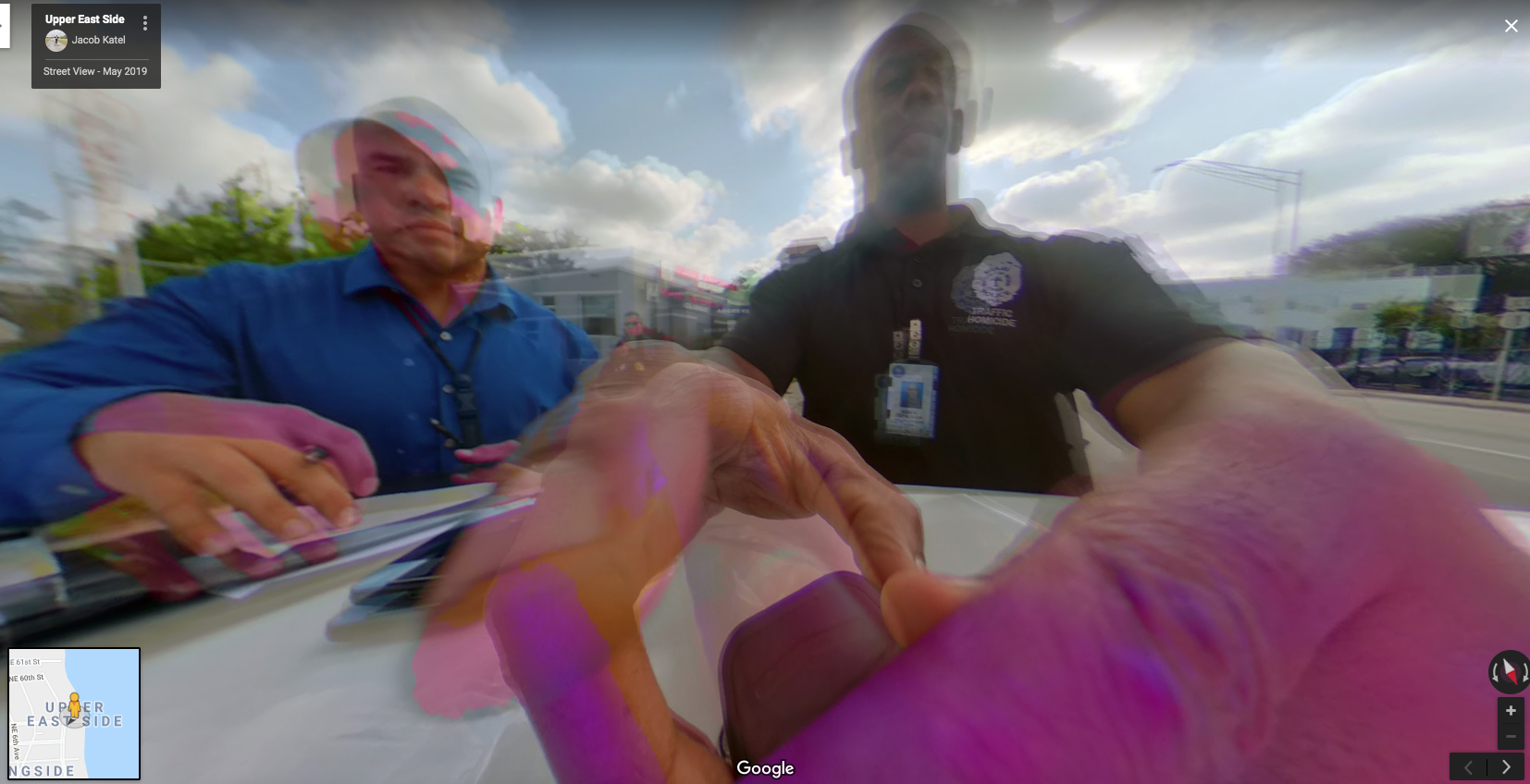
Screenshot via Google Maps

Audio By Carbonatix
Saturday afternoon, Jacob Katel was headed to Miami Beach when traffic suddenly came to a crawl. The photographer tried to reroute, only to come across a motorcycle crash on the corner of NE 79th Street and Seventh Avenue, which he quickly realized was the reason for the standstill. So Katel parked his car and did something he’d done thousands of times: stopped to take some photos.
But seconds after he took out his camera — before he could even shoot a single picture — a Miami Police officer began yelling as he approached Katel, the photographer says. After a brief interaction, the officer placed him in handcuffs and seized his phone and camera.
“I feel if they did this to me, it happens to a lot of people,” says Katel, who has ten years of freelance media experience, including with Miami New Times. “I feel if I was anybody except me, I might have gotten kicked in the head or shot.”
Katel has since filed complaints with the internal affairs department at MPD and with the Civilian Investigative Panel, an independent police-oversight board. Miami Police did not respond to two emails from New Times seeking comment.

An accidental photo on Katel’s camera shows Miami Police inspecting it at the scene of a crash.
Screenshot via Google Maps
Katel says he was polite, obedient, and upfront with officers throughout the encounter about who he was and what he was doing. As he approached the crash scene, the first officer he saw told him he could stay on the sidewalk. Soon after that, he was approached by another cop, who angrily placed him in handcuffs.
Katel says he tried to explain that he was a professional photographer and that he’d been told he could move freely on the sidewalk. He also offered to leave the scene immediately. Instead, officers escorted him across the street, where he was detained and further questioned. Although he was eventually released without being charged with a crime, police took his camera and cell phone, saying it was “evidence.”
Because it was a holiday weekend, Katel says he wasn’t able to retrieve the items until Thursday.
“I think a lot of people do lose things in Fourth Amendment violations, especially in Miami,” he says.
The incident as described by Katel appears to violate MPD’s policies about civilian recording of police activity, which states explicitly that “federal courts have recognized that recording devices are a form of speech.
“Therefore, it is the policy of the Miami Police Department (MPD) to ensure the protection and preservation of every person’s First Amendment right to observe and record police officer(s)/employee(s) engaged in the public discharge of their duties,” the policy says.
Although Katel disapproves of the way the officers handled the situation Saturday, he says he supports law enforcement and initially wanted to photograph the crash scene to show police helping those involved.
“If the officers intend to have a good standing in the community, they should be proud for the public to see them at work,” Katel wrote in his complaint to internal affairs. “And if they are doing nothing wrong, they should be OK with a reasonable curiosity toward their activities.”